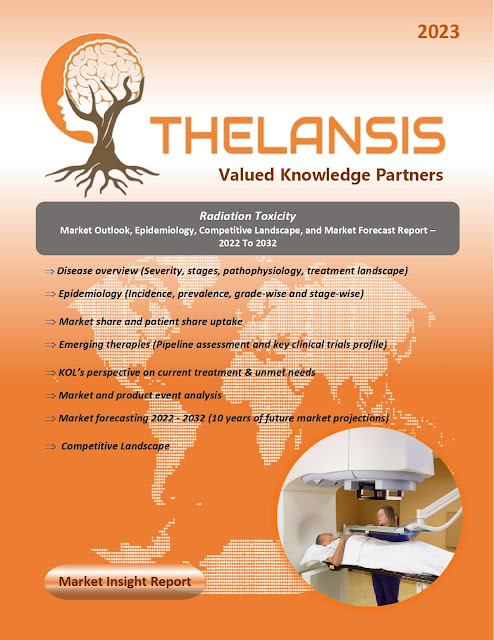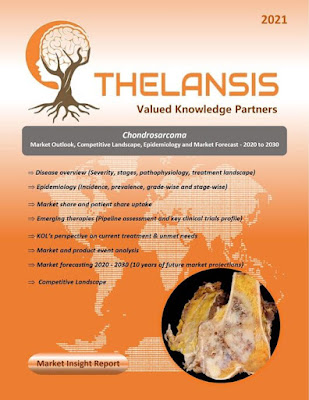Radiation Toxicity – Market Outlook, Epidemiology, Competitive Landscape, and Market Forecast Report – 2022 To 2032
Radiation toxicity is a significant consideration when it comes to radiotherapy, which is primarily used in treating cancer, arteriovenous malformations in the central nervous system (CNS), and thyroid conditions. Radiotherapy can give rise to both short-term toxicity and long-term consequences. Short-term adverse effects manifest during treatment or within three months afterward, while late effects are observed beyond that timeframe. Late effects, such as fibrosis, are generally irreversible and progress over time. The effects of radiation toxicity vary depending on the targeted tissue. Acute-responding tissues, such as haematopoietic and embryonic tissues, hair follicles, and specific intestinal epithelium and dermis layers, have high regenerative capacity and undergo apoptosis to eliminate severely damaged cells. Like the brain, slowly regenerating tissues tend to respond with permanent cell cycle arrest rather than apoptosis. Early adverse effects of radiation-induced tissue damage include dermatitis, mucositis, pneumonitis, and depletion of blood cell counts. Chronic inflammation leads to tissue fibrosis, characterized by excessive fibroblast replication and matrix deposition.
Thelansis’s “Radiation Toxicity Market
Outlook, Epidemiology, Competitive Landscape, and Market Forecast Report – 2022
To 2032" covers disease overview, epidemiology, drug utilization,
prescription share analysis, competitive landscape, clinical practice,
regulatory landscape, patient share, market uptake, market forecast, and key
market insights under the potential Radiation Toxicity treatment modalities
options for eight major markets (USA, Germany, France, Italy, Spain, UK, Japan,
and China).
KOLs insights
of Radiation Toxicity across 8 MM market from the centre of Excellence/ Public/
Private hospitals participated in the study. Insights around current treatment
landscape, epidemiology, clinical characteristics, future treatment paradigm,
and Unmet needs.
Radiation Toxicity Market Forecast Patient
Based Forecast Model (MS. Excel Based Automated Dashboard), which Data Inputs
with sourcing, Market Event, and Product Event, Country specific Forecast
Model, Market uptake and patient share uptake, Attribute Analysis, Analog
Analysis, Disease burden, and pricing scenario, Summary, and Insights.
Thelansis Competitive Intelligence (CI) practice
has been established based on a deep understanding of the pharma/biotech
business environment to provide an optimized support system to all levels of
the decision-making process. It enables business leaders in forward-thinking
and proactive decision-making. Thelansis supports scientific and commercial
teams in seamless CI support by creating an AI/ ML-based technology-driven
platform that manages the data flow from primary and secondary sources.


Comments
Post a Comment